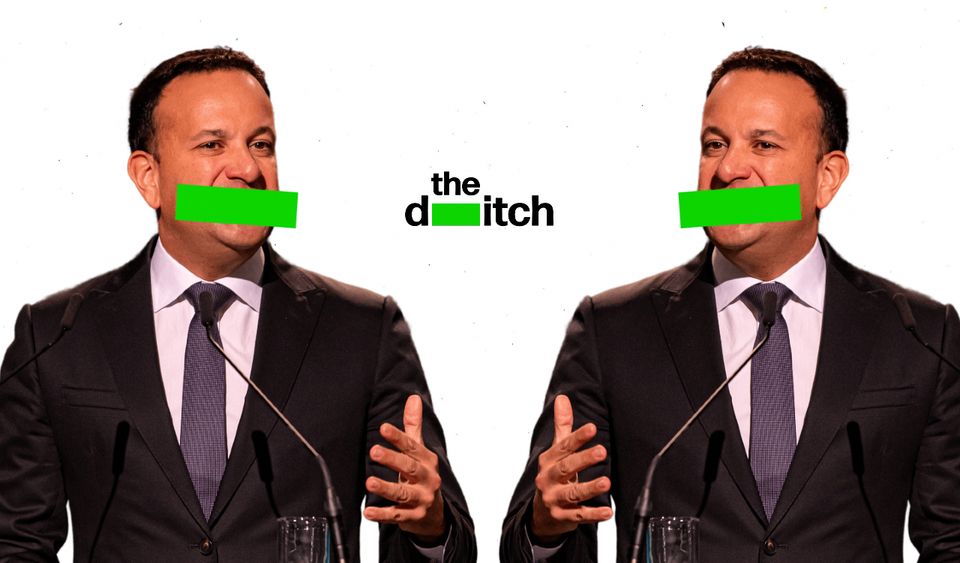Leo Varadkar has a choice to make by Wednesday.
He needs to respond to SIPO by 30 August, after the ethics commission requested of him “a comprehensive response”, with an explanation of why he didn’t publicly declare a number of donations he received in 2018 and 2022. It seems, from previous correspondence between SIPO and the taoiseach, that he can do one of two things: admit to the ethics commission that he, knowingly or otherwise, misled it when explaining why he didn’t declare these donations; or he can stick to his story, a story that’s since been disputed by one of his donors, and risk getting these donors in trouble.
The latter choice could drag one of his close friends, attorney-general Rossa Fanning, into a spotlight he didn’t seek.
In February 2019 Varadkar told SIPO that a €1,400 undeclared 2018 donation from PR company Edelman was “reimbursed”, as he put it, by seven individual donors. This meant that each supposed €200 donation did not have to be declared in Varadkar’s annual donation declaration. All donations exceeding €600 need to be publicly declared while donations more than €1,000 aren’t legally allowed. SIPO at the time accepted Varadkar’s telling and there were no consequences for the taoiseach.
This wasn’t to be the end of it though and in May 2023, SIPO, which has been engaging with Varadkar regarding his nil 2022 donation statement, returned to the matter. SIPO asked him to again explain a number of donation transactions that exceeded the €600 declarable threshold.
The commission told the Dublin Mid-West TD that if these donations were from multiple individuals, as Varadkar had said, then there were legal implications for the person who made the payment to Varadkar’s donations bank account. SIPO informed Varadkar that this person would have registered as a third-party intermediary and made the appropriate returns.
Varadkar, who had previously responded to SIPO correspondence within a matter of weeks, ignored the state ethics watchdog.
It’s worth remembering what Varadkar’s two choices could lead to: knowingly making a misleading declaration to SIPO is an indictable criminal offence punishable by up to three years’ imprisonment; failure to register as an intermediary and make the necessary returns to SIPO is also a criminal offence under the Electoral Act 1997.
Last week SIPO again wrote to Varadkar, noting he had failed to respond to the letter sent to him over three months ago. The commission also told Varadkar that one of his donors had rejected his explanation of why he hadn’t declared their donations
Edelman, according to SIPO, confirmed that no individuals had reimbursed their 2018 and 2022 donations. SIPO, in this correspondence to Varadkar, seemed to accept the veracity of the PR firm’s clarification.
Varadkar had submitted two statutory declarations, in 2019 and 2023, declaring that he didn’t receive any single donations more than €600 in 2018 or 2022. This, as we know now, wasn’t true.
There are also questions over a 2018 donation made by attorney-general Rossa Fanning.
We don’t know the exact figure involved but it’s safe to assume it exceeds the €600 threshold otherwise SIPO wouldn’t have any reason to query it. Varadkar in February 2019 told SIPO that Fanning had been reimbursed by other individuals for his donation. This is the same explanation he used for both Edelman donations, which has since been disputed by Edelman.
If the attorney-general collected more than €100 from third parties on behalf of Varadkar, he was required by law to register with SIPO, open a separate bank account for donations and submit returns. So far, there is no evidence to suggest any wrongdoing on the part of Fanning. But it puts Varadkar in a tight spot.
For all the deserved criticism SIPO receives, the commission has given Varadkar two options, neither of which being ones the taoiseach would like to make.
He can admit to SIPO that, unwittingly or not, he gave it misleading information in February 2019, when he said his undeclared donations were in fact from multiple donors. If he doesn’t want to do that, he can stick to his original story, which means these donors, who supposedly made payments on behalf of others, would have had to, by law, register as intermediaries.
The former could potentially involve the commission sending a file to the DPP, while the latter could mean a potential breach of the Electoral Act for his donors.
Varadkar has till Wednesday to decide.


